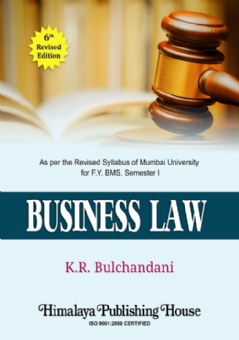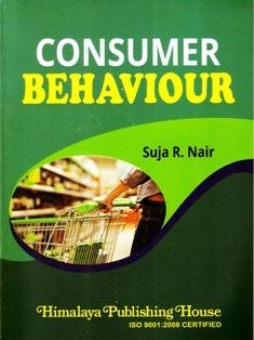It is my pleasure to present to my readers sixth revised edition of Business Law (for BMS). Law continues to develop and evolve. But with the present governance, it is rapidly developing and evolving. After the last edition of this text, the legislations covered by this text have also being substantially changed. Even while this book was in the press, new provisions were inserted in Negotiable Instruments Act, 1881 by amendment of 2018. Rapid revision and keeping the pace with the amendments is always challenging to ensure that the book touches the shelves at the earliest.
Law need not be static but it also should not be subject to rapid and regular amendments. There may be a valid reason for the enactors to support such rapid amendments, but it also leads to chaos and complex to follow besides making enforceable thereof difficult. Deletions, substitutions, additions with provisos and explanations makes the reading of law a nightmare, particularly with the provisions scattered in the statute, rules, regulations followed by notifications, circulars and orders. For able and stable governance, it is also imperative to avoid complex, several and huge dose of legislations. If only, we as the citizens could be spared of repeated changed law, for good governance comes with stability and certainty.
To illustrate, Companies Act, 2013, promising to be a compact legislation with less complex provisions than the Companies Act, 1956 (since repealed), falls miserably short of such expectations. With 41 voluminous Rules enacted between the period from 2014 to 2016, besides regulations, circulars, clarifications and orders issued, makes the reading and compliance thereof a nightmare. Interestingly, both the substantive provisions in the Act and the procedural provisions in the Rules, overlap each other to add to the confusion, complexities and repetitions. It is becoming difficult to distinguish between what is substantive law and what is procedural law.
Mercifully, the British enactments like the Contract Act, 1872, Sale of Goods Act, 1930 and such like legislations, continue to maintain consistency in law. If, British Parliament could enact such laws, why our governance, much more in expertise, is not able to achieve likewise?
The task of grouping the substantive and procedural law and provide my readers a simplified and lucid reading and understanding of the subject, has been always a challenge for me. The fact that my readers have acclaimed my writings, it prompts me to continue the same flow in the revised texts. The present text aims at updating the law in view of vast changes in law between 2014 and 2018.
Contents –
Introduction
Module-I Law of Contract
Module-II Law of Sale of Goods
Module-III Law of Negotiable Instruments
Module-IV Law of Consumer Protection
Module-V Company Law
Introduction
1. Company — Formation and Regulation
2. Memorandum of Association and Articles of Association
3. Membership of A Company
4. Prospectus and Private Placement
5. Meetings
6. Securities, Share Capital, Shares, Transfer and Transmission of Shares
Module-VI Intellectual Property Rights
Introduction
VI(A) Patents
VI(B) Copyrights
VI(C) Trade Marks
VI(D) Geographical Indications of Goods







